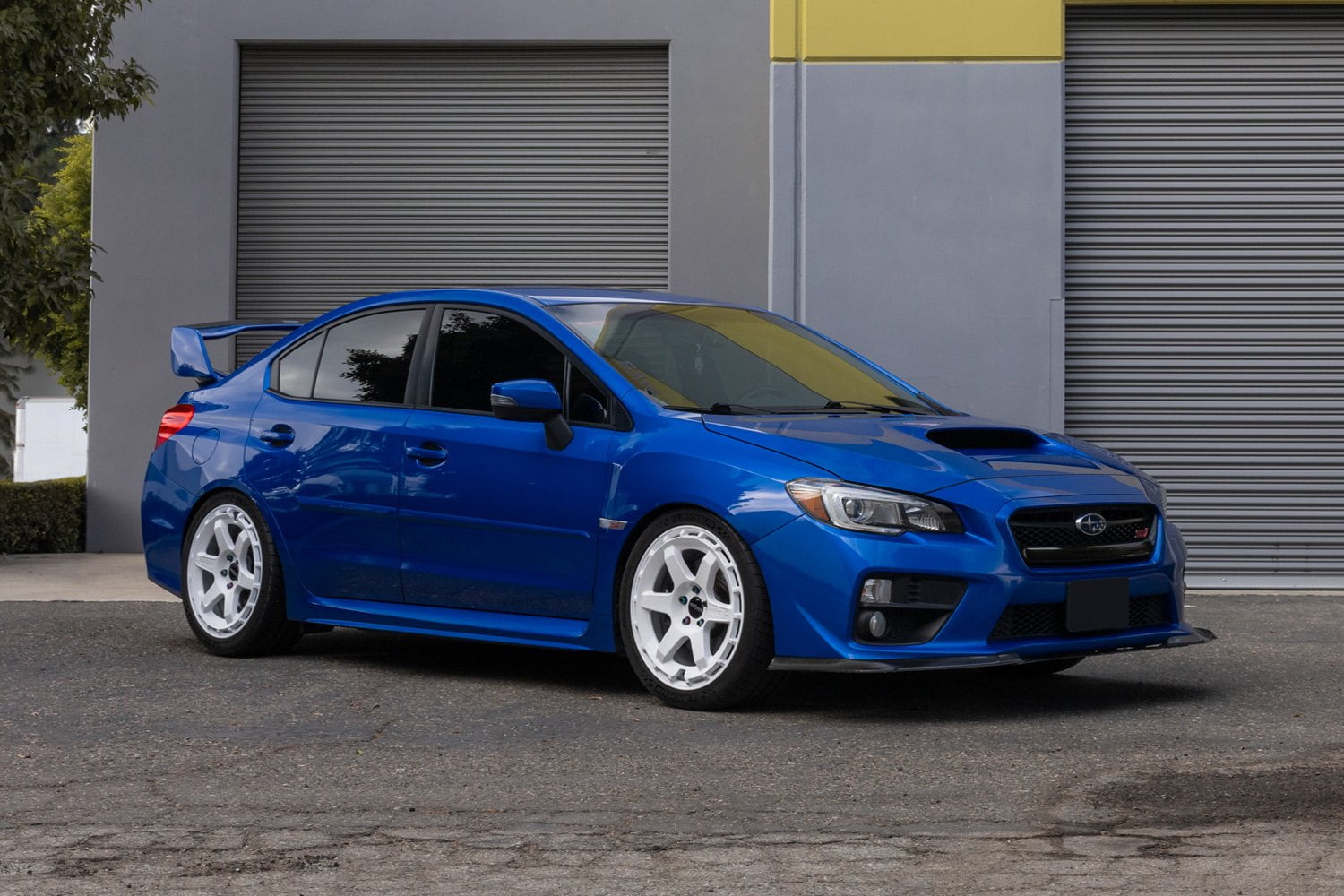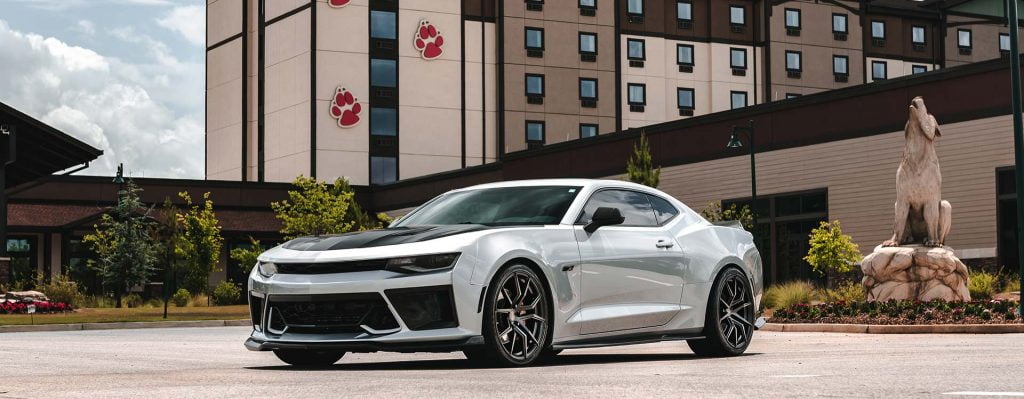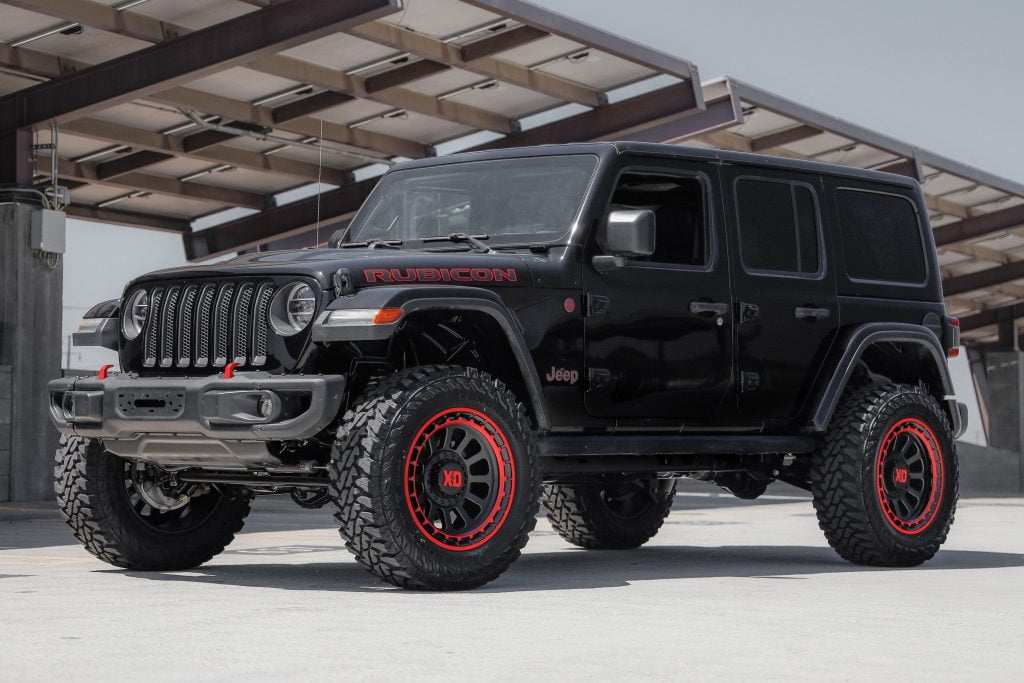
If you’re going to upgrade your wheels and tires, you might be trying to figure out if you should stick with OEM size wheels and tires or upsize. Upsizing is popular with tuners and offroaders, so it’s got to be better. Right? Well, it depends on how wide you go, where you drive, and when you drive. We’ll explain.
WIDER WHEELS ARE WRAPPED IN WIDER TIRES
Let’s just start with the obvious; wider wheels are wrapped in wider tires. Just makes sense. So wider wheels with wider tires must be the bomb. Well, yes and no. Wider wheels and wider tires are usually done as part of overall upsizing wheels and tires. That means making the wheels taller and wider and the sidewalls of the tire shorter and the tire width wider.
Shorter sidewalls make the tread more rigid and stable. Rigidity and stability give you better performance because you have better grip in dry conditions. That’s awesome.
Wider tires change the size and shape of the patch where the rubber literally hits the road. The patch where tire meets road becomes square instead of oval. That square patch is great for grabbing the road when it’s dry. But, in wet conditions that square patch is more likely to hydroplane. That’s not awesome at all. So, make sure your wider wheels are wrapped in wider tires that are built to perform on wet roads.

For example, say you want to take the OEM wheels and tires on your 2017 Cherolet Camaro from the stock 7½” width up to wheels that are 9” wide. To still get good performance in the rain, you’d go with a tire like that is specifically designed with wet road hydroplaning resistance. You get that better dry pavement performance and get the hydroplaning under control all at the same time.
So, are wider wheels better? Yes, if the pavement is dry. If you live in a rainy location where the pavement is frequently wet, make sure you buy tires made to resist hydroplaning.
WIDER WHEELS FOR STARTING AND STOPPING
When it comes to braking and acceleration, are wider wheels better? This is an enthusiastic yes. Need to brake hard? Wider wheels are your brake’s best friend. Want more traction off the line? Go with wider wheels. Sure, smaller wheels have more instantaneous acceleration because of their smaller mass, but that’s the short-term view.
Wider and larger wheels give you better sustained, higher acceleration over distance. That’s because that larger wheel has a larger leverage arm. You can check out that link to read up on the physics and formula, or just trust us that the larger the lever arm the greater the distance moved with the same amount of torque.

Once you are rolling, those wider wheels help you stop faster. You may think stopping is all about braking, but that’s not really accurate anymore. The introduction of automatic braking systems (ABS) changed all of that. Now, when you hit the brakes ABS takes it from there. So, the only way to really affect your stopping ability is to change tires and with an improved frictional coefficient. Yes, tires have more to do with stopping than brakes.
So, are wider wheels better for stopping and starting? You betcha. Wider wheels are a great way to improve performance in these two areas.
ARE WIDER WHEELS BETTER FOR OFFROADING?
Are you kidding? When you leave the pavement behind, you had better be rolling on wider wheels. Upsizing your 4 x 4 isn’t optional. We don’t recommend going crazy with the lift kit but we do recommend upsizing within limits. Speaking of limits, you should also know that while most states don’t regulate the amount you can lift, they do regulate the maximum height of the headlights, and that’s just another way of regulating the lift. So don’t upsize more than 3 inches. You’ll be glad you’ve got those wider wheels. Why?

Remember the better grip on dry pavement? Yeah, well that translates offroad as well. Wider wheels flatten out a bit more. That makes your Jeep grapple with rocks and trails better. When you get wider wheels, you can run wider mud tires on your truck. Wider mud tires give you more room for bigger sipes and more room for wider channels between the blocks. That’s just an overall better mud tire. Wider wheels let you ride on wider all terrain tires. Wider all terrains give you more surface area for bigger and beefier treadblocks and larger channels for better traction on gravel, rock and other unpaved surfaces.
So, are wider wheels better for offroading? Yes, yes and yes. Upsizing with larger and wider wheels is essential for the best 4 x 4 experience.
DO WIDER WHEELS AFFECT FUEL ECONOMY?
If wider wheels help you go faster, quicker, does that save on gas? Are wider wheels better for fuel economy? Sadly no. Wider wheels are heavier wheels. Heavier wheels have more mass. More mass means additional unsprung weight. Every bit of unsprung weight decreases the fuel economy of your vehicle.
Wider wheels won’t take your mileage from miles to the gallon to gallons to the mile, but your MPGs will suffer slightly. The trade-offs are all the positives that come with the wider wheels. And speaking of positives, there’s one last very important way wider wheels are better: wider wheels with wider tires mean lower steering friction coefficient. That makes taking sharp turns an awesome experience.
So, are wider wheels better for gas mileage and performance? No and yes. Wider wheels aren’t good for gas mileage but when it comes to performance they rock and roll!


